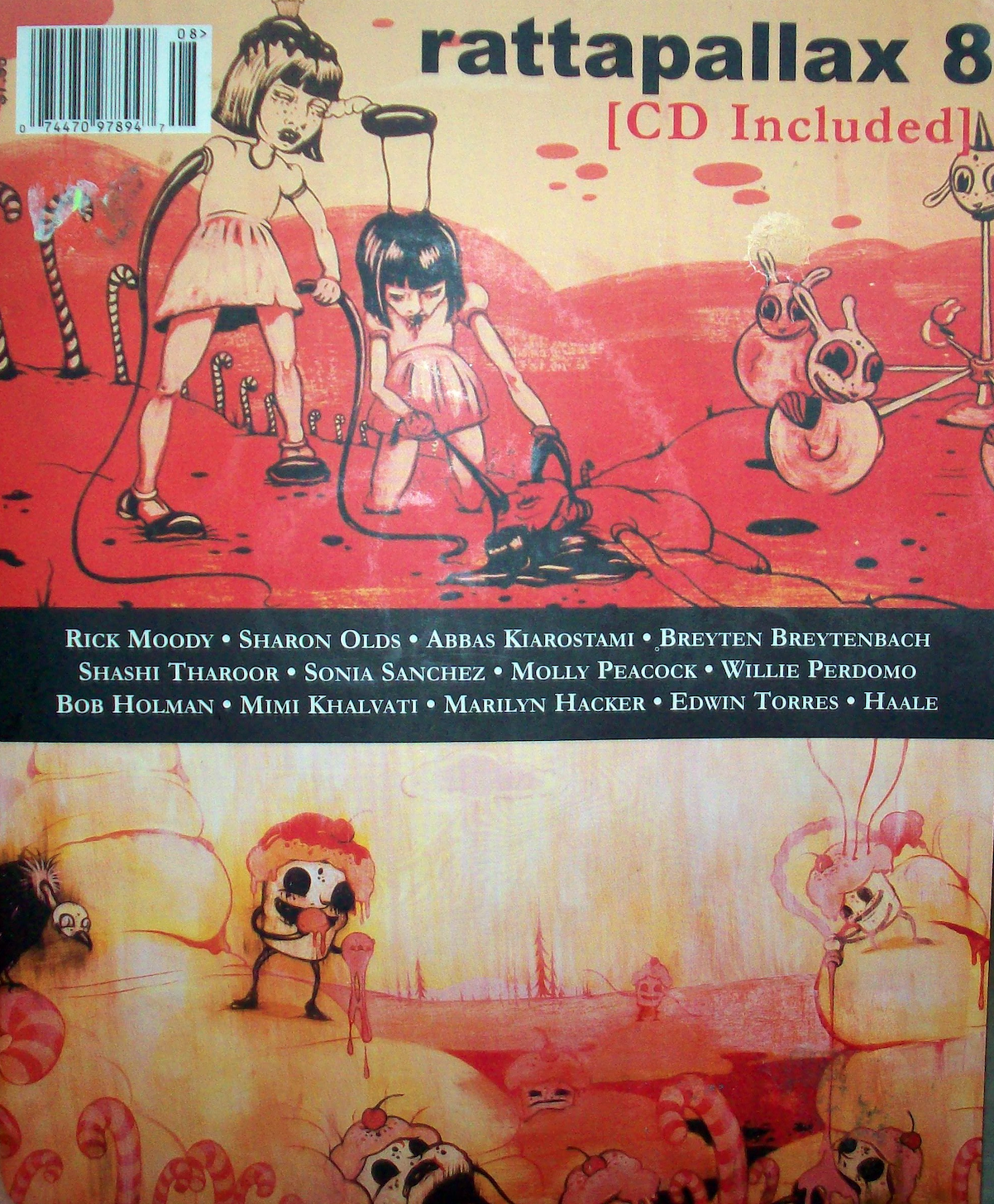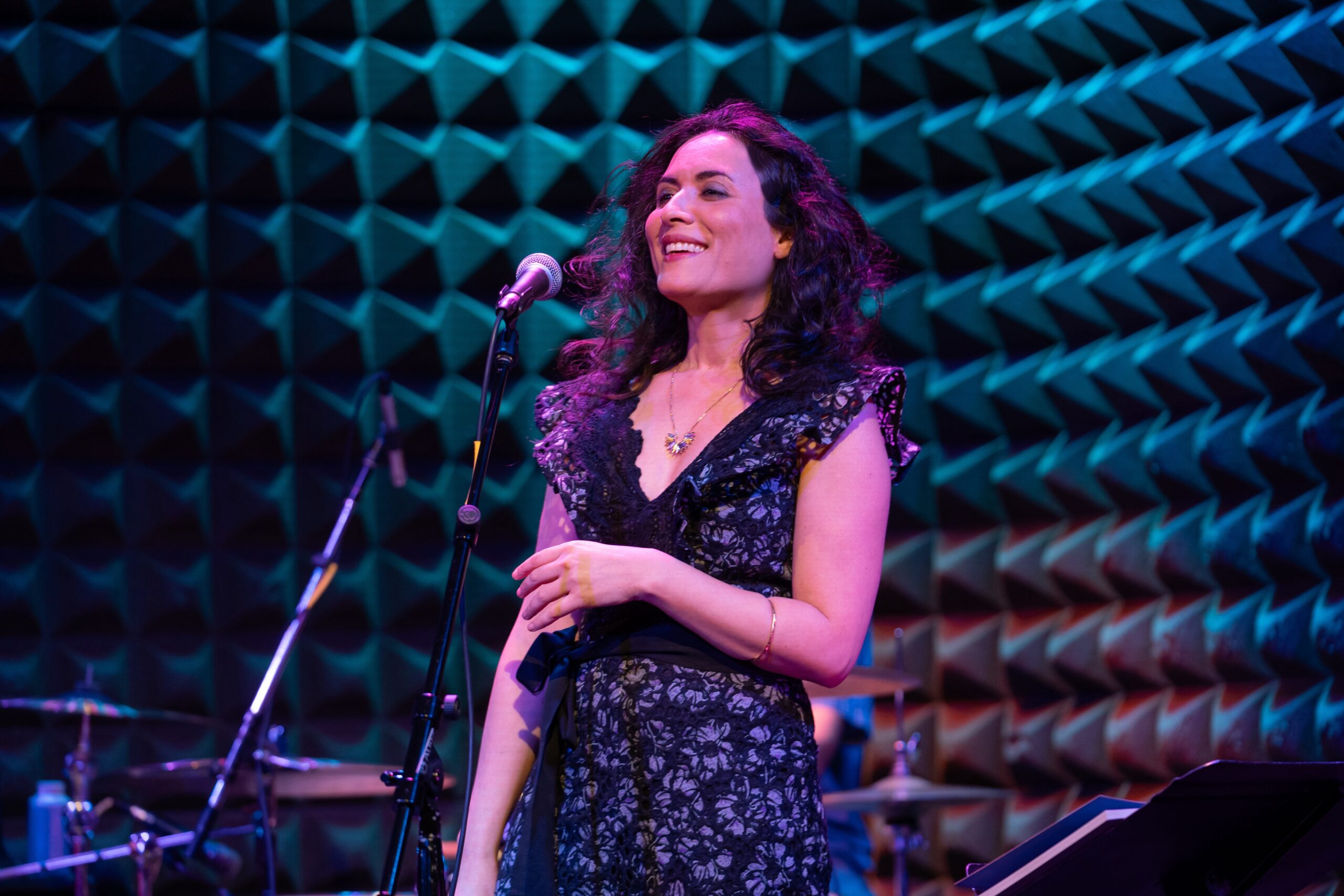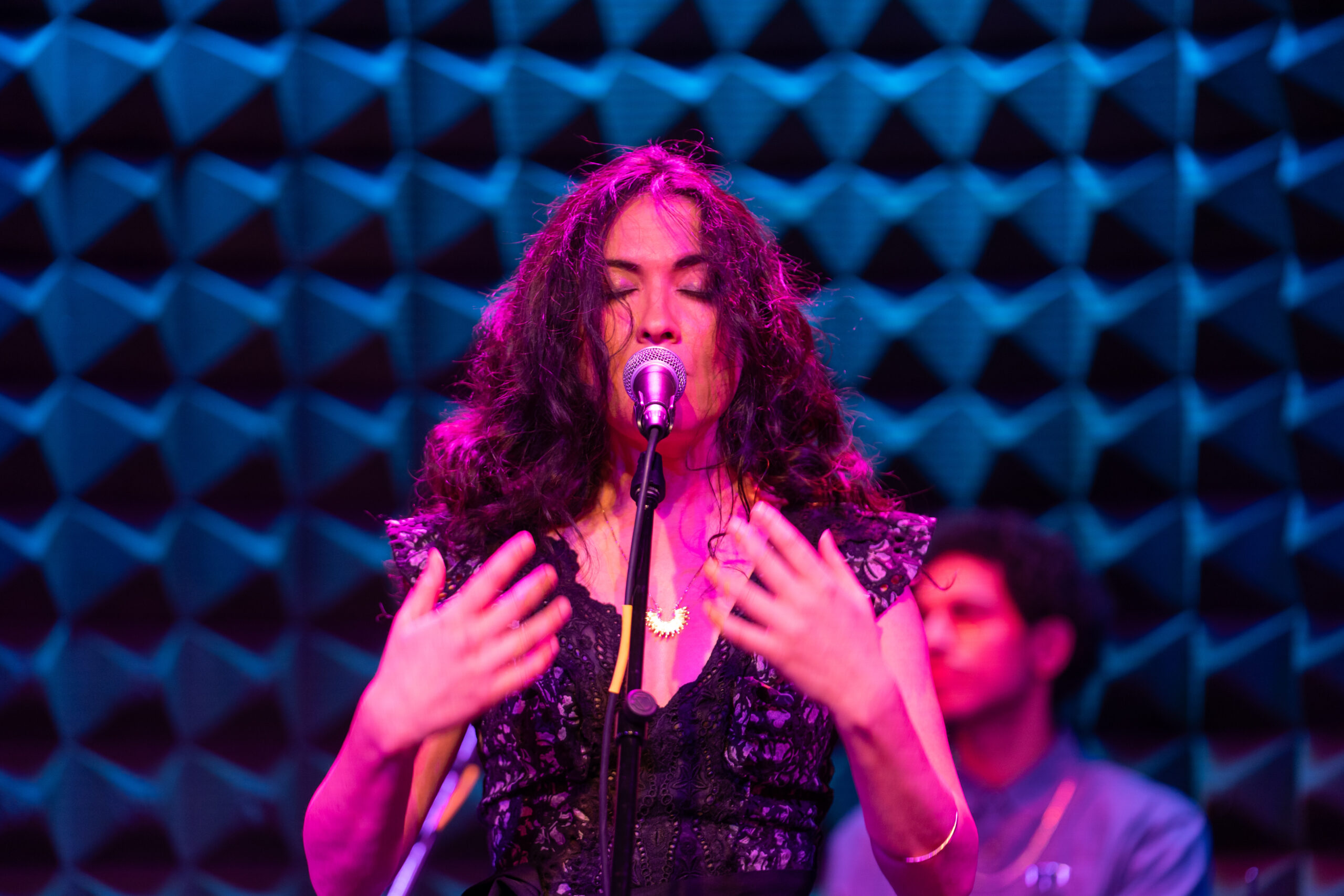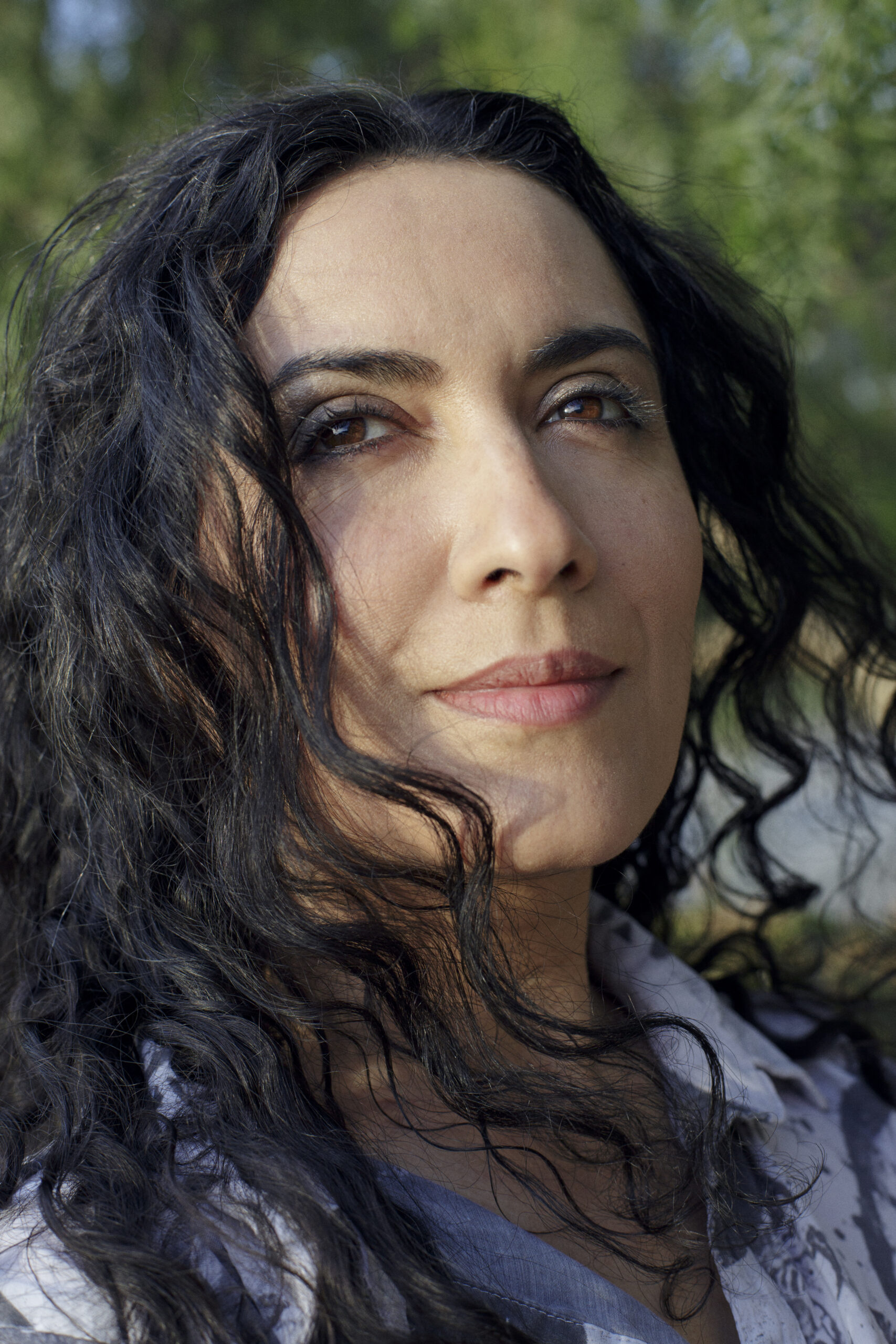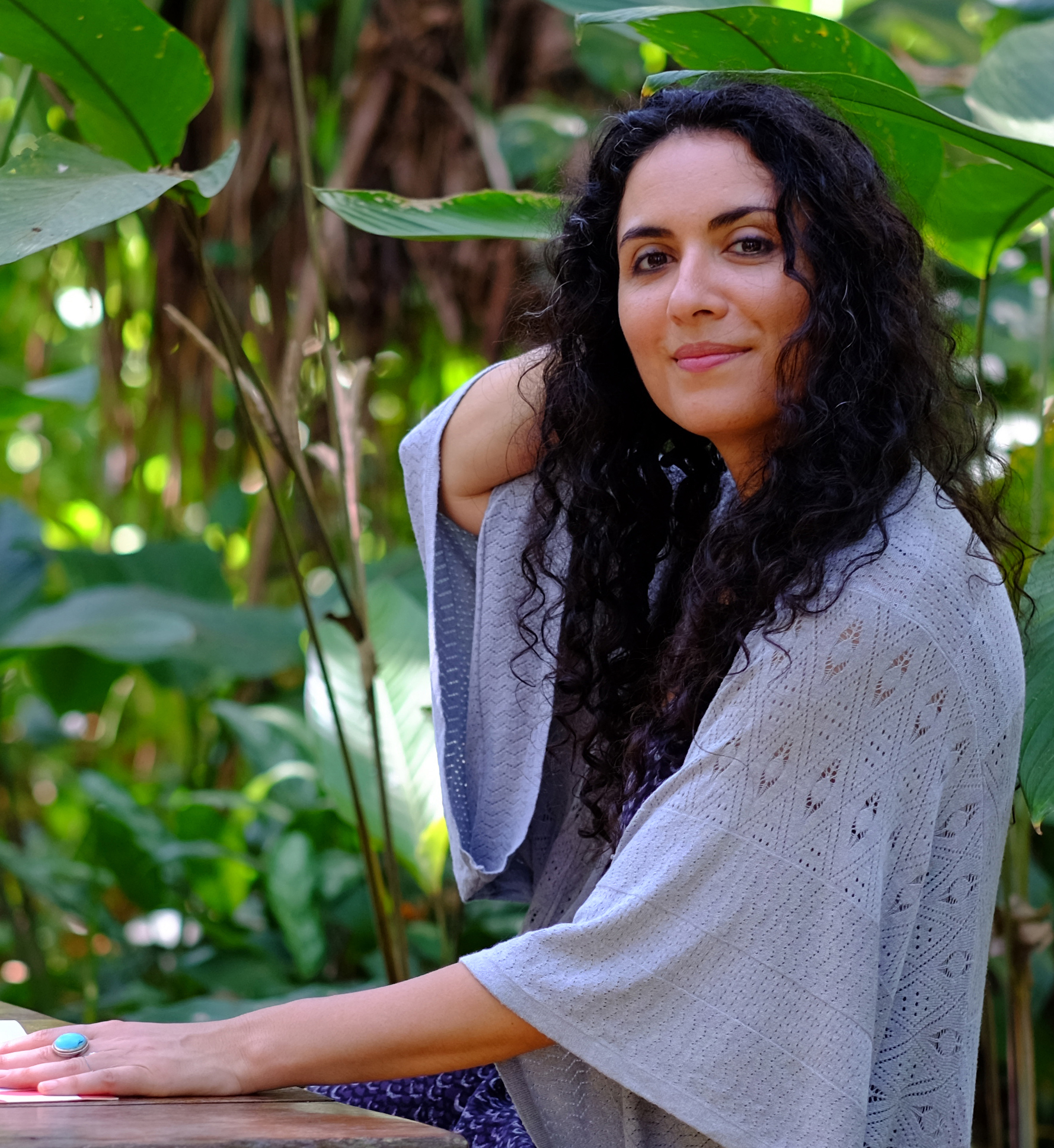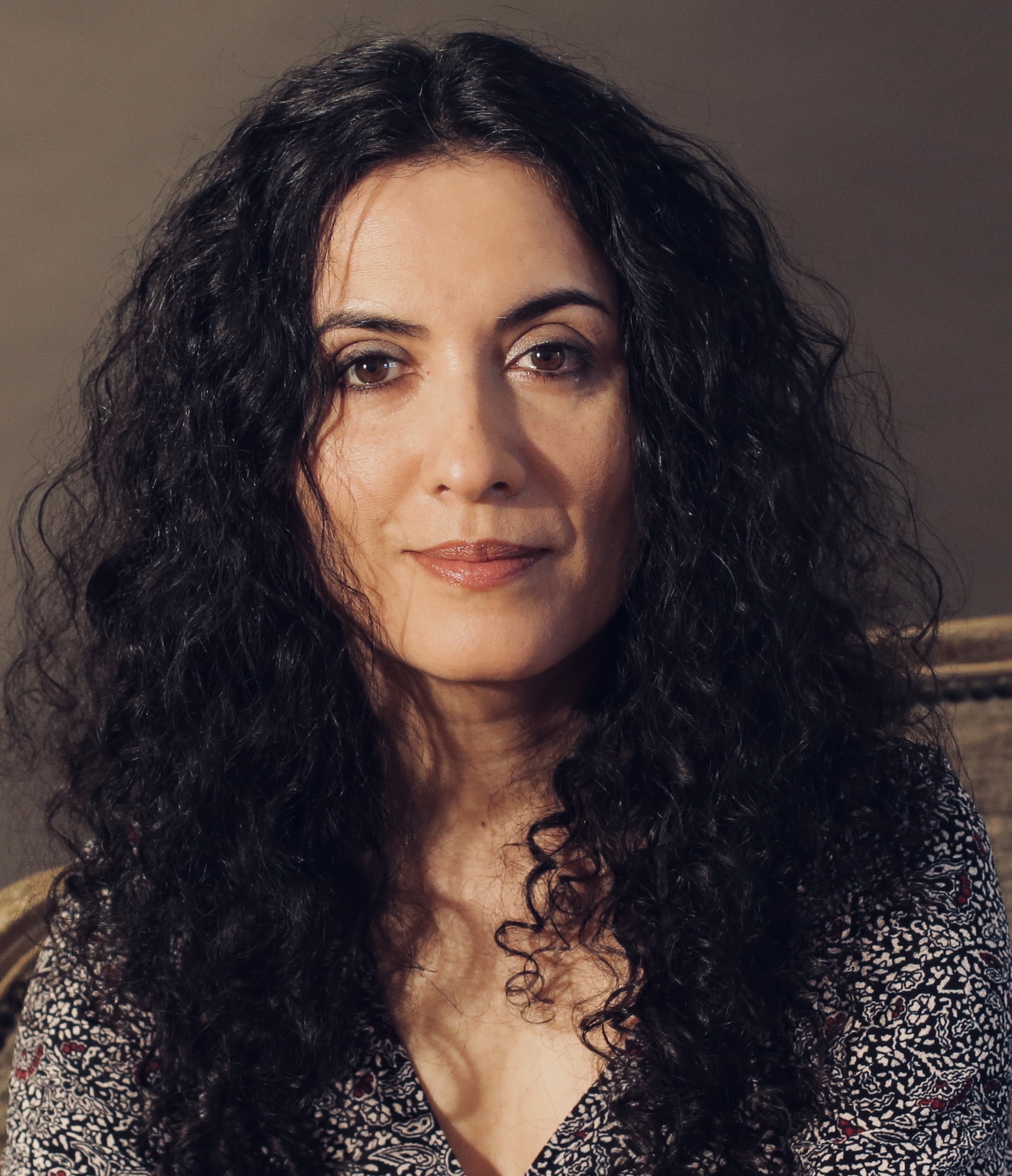
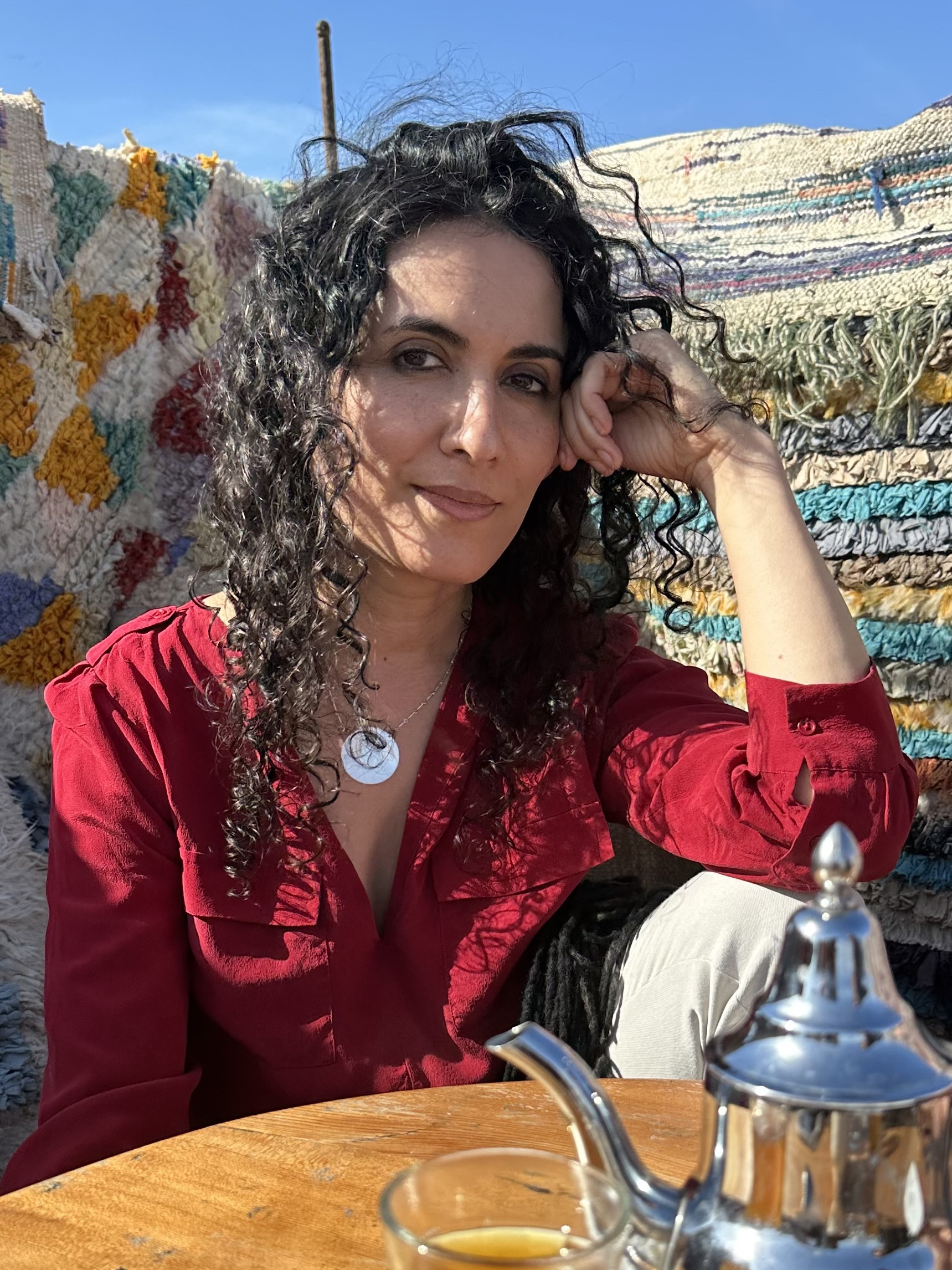
Haleh Liza Gafori
Premier Translator of Rumi
Vocalist, Poet, Educator
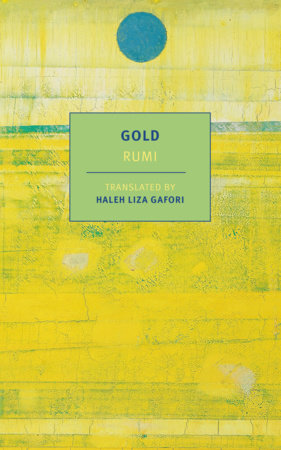
Readings &
Lecture Topics
- The Insight of Rumi
- Love & Alchemy: Rumi in Conversation with Poets, Essayists, and Our Times
- An Evening with Haleh Liza Gafori
Biography
“There’s a rich fluency here not just in idiom but in gesture, in spirit. It’s uncanny to encounter eight-hundred-year-old verse this urgent. Gafori’s Rumi teaches me how to wander into mystery—“humble as soil”—without galloping toward some hasty and inorganic conclusion. What a gift this is, what gold.” —Kaveh Akbar
“Gorgeous, fluent, faithful.” —Pádraig Ó Tuama
Haleh Liza Gafori is a translator, vocalist, performance artist, poet, and educator born in New York City of Iranian descent. She grew up hearing recitations of Persian poetry and has deepened her connection to her ancestral culture through singing and translating the work of various Persian poets, most notably the poetry of the 13th century sage and mystic Rumi.
In 2022, her translations of poems by Rumi were released in a book entitled Gold, published by New York Review Books/NYRB Classics. Poet Marilyn Hacker describes Gold as, “the work of someone who is at once an acute and enamored reader of the original Farsi text, a dedicated miner of context and backstory, and a marvelous poet in English,” while Pádraig Ó Tuama calls her translations, “Gorgeous, fluent, faithful…rendering Rumi’s voice on the page with an original integrity that is as skilled as it is unforgettable.” Gold was chosen as a Favorite Book of 2022 by Maria Popova at the Marginalian, and declared a book that is “bound to go on nourishing generations to come.” Her second translation of Rumi’s work, Water by Rumi (Penguin Random House,2025) expands on her inspired and widely praised translations of the lyric poetry of the Persian mystic.
In 2023, Gafori was offered a MacDowell Fellowship for the 2024 season during which she plans to complete her second volume of translations.
In 2023, the New York State Council on the Arts/NYSCA offered Gafori a grant to continue the development of a cross-media performance piece based on Gold which weaves translations, stories, original poetry, and musical compositions featuring Rumi’s lyrics sung in Persian, giving audiences a window on to the astonishing rhythm, rhyme, and wordplay of the original text. The piece debuted to a full house at the New York Public Library in 2023 for World Heritage Month, and Gafori continues to develop and perform it at venues across the country.
Through readings, lectures, performances, and workshops, Gafori has presented her work at universities, festivals, and cultural centers including Stanford University, Swarthmore College, Sarah Lawrence College, Lincoln Center, Bryant Park Reading Series, the Bradford Literary Fest in England, the Women’s Library in Istanbul, Turkey, and Omega Institute.
Gold has been incorporated into the curriculum at Stanford University, Colorado St University, St Joseph’s University, Houghton College, St. Olaf’s College, and elsewhere. Of her teaching, a former workshop participant reflected, “Within five minutes of Haleh Liza Gafori’s workshop on The Insight of Rumi I knew our time together was going to be special. I was not prepared, however, for the transformational experience that unfolded for me over the three days we spent exploring the wisdom of Rumi. Haleh’s extraordinary insight into the truths embodied in Rumi’s poetry contributed to one of the most revelatory and emotionally positive experiences I have ever had. Drawing on her intimate knowledge of both Persian and Western language and cultures, interspersed with recitation, chant and music, Haleh took us on a journey of profound passion and inspiration. I came away infused with a desire to pass through this world in a more enlightened and meaningful way.”
Gafori’s work has been featured in Literary Hub, Harvard Review, Hyperallergic, The Marginalian, and elsewhere. Her poem “Orange Alert” was anthologized in Love and Forgiveness for a More Just World, edited by Hent de Vries and Nils F. Schott (Columbia University Press, 2015). In current and past musical projects, including Haale and The Mast, Gafori has toured across the US and in Europe, playing events such as One Note at Carnegie Hall, the Lincoln Center Out of Doors Festival, and the Bonnaroo Festival. She has released a few albums to critical acclaim, from which songs have appeared in NBC’s series “Life” and CWTV’s series “The Originals.” In 2018-2019, she translated, composed, and performed in the collaborative multi-media project called “Ask Hafez,” supported by the Queens Council on the Arts.
Regarding translation, Gafori said, “The languages of Farsi and English possess quite different poetic resources and habits. In English, it is impossible to reproduce the rich interplay of sound and rhyme (internal as well as terminal) and the wordplay that characterize and even drive Rumi’s poems. Meanwhile, the tropes, abstractions, and hyperbole that are so abundant in Persian poetry contrast with the spareness and concreteness characteristic of poetry in English, especially in the modern tradition. I have sought to honor the demands of contemporary American poetry and conjure its music while, I hope, carrying over the whirling movement and leaping progression of thought and imagery in Rumi’s poetry… I have chosen poems that seem to me beautiful, meaningful, and central to Rumi’s vision, poems too that I felt speak to our times.”
A graduate of Stanford University, Gafori received her MFA in creative writing from CCNY. She lives in Brooklyn, NY.
Short Bio
Haleh Liza Gafori is a New York City-born translator, performance artist, writer, and educator of Persian descent. A 2024 MacDowell fellow, she has translated the poetry of the Persian mystic and sage Rumi. Her book of translations entitled Gold: Poems by Rumi, was published by New York Review Books in 2022. She is currently working on the second volume. Supported by an NYSCA grant, she has created a musical and cross-media performance based on the book and has presented her work, via performances and lectures, at institutions such as Lincoln Center and Stanford University. Gafori’s book of translations Gold has been incorporated in the curricula of universities across the country. She has offered workshops and/or immersive retreats on his poetry at places such as Swarthmore College, St John’s University, and Omega Institute.
Visit Author WebsiteVideos
Publications
Water by Rumi
Translation, 2025
Gold
Translation, 2022
Rattapallax
Anthology, 2003
Best of American Poetry 2003 (edited by Yusef Komunyakaa) featuring poems by Marilyn Nelson & Myra Shapiro. NEW PERSIAN POETRY: (edited by Haleh Liza Gafori) Shadab Vadji, Manucher Atashi, M. A. Sepanlu, Mohammad-Reza Shafii-Kadkani, Ali Zarrin, Ahmad Shamlu, Omran Salahi, Katayoun Zandvakili, Mimi Khalvati, Parinaz Eleish, Mohammad Mokhtari, Esmail Khoi & Abbas Kiarostami. Also, popular Persian song lyrcis. Edited and songs performed by Haale.DIALOGUE THROUGH POETRY READING (audio): Sharon Olds, Sonia Sanchez, Breyten Breytenbach, Shashi Tharoor & Bob Holman. ARTIFICIAL INTELLIGENCE POETRY (audio): Raymond Kurzweil’s Ramona, Edwin Torres, Anne Tardos, Juliana Spahr & Brian Stefans Kim. AUDIO FEATURES: Molly Peacock and Willie Perdomo. POETRY: Rick Moody, Marilyn Hacker, Eamon Grennan, William Pitt Root, Deborah Warren, Jeanne Marie Beaumont, Jeet Thayil, Karen Swenson, Elaine Sexton, Kate Light & many others.
Articles & Audio
Read What’s In Print
• Favorite Books of 2022 – The Marginalian
• Review: Gold translations by Haleh Liza Gafori – Publishers Weekly
• How Rumi Became a Poet by Haleh Liza Gafori – Literary Hub
• Review: Reading a New Translation of Rumi – Hyperallergic
• The Art of Choosing Love Over Not-Love: Rumi’s Antidote to Our Human Tragedy – The Marginalian
• A new Rumi translation steers clear of gurudom for a poetics divine and earthly – 4Columns
Listen To Audio
• Rumi, Colorless, Nameless, Free – Poetry For All
• Pádraig Ó Tuama Reads “You Wake the Dead to Life” by Haleh Liza Gafori – OnBeing
• How Can Rumi Heal Your Heart with Haleh Liza Gafori – Artidote
• Translate Love and Compassion with Haleh Liza Gafori – Wild Precious Life
• Translating Rumi: A Conversation with Haleh Liza Gafori – Sacred Footsteps
• Ecstatic Embodiment: Rumi and the Politics of Delight – The Brooklyn Rail
• The Alchemy of Love: Translating Rumi and Timeless Poetry – Awakin
Selected Writings
You Found Me
You found me once again,
you thief of hearts. In drunken ecstasy,
you searched the bazaar and found me.
Even through sleepy-lidded, Love-drunk eyes,
you spotted me. I ran to the tavern.
You found me.
Why do I run when no one can escape you?
Why hide when you’ve found me a hundred times?
I thought I could lose you in a crowd of people.
But you find me even in crowds of secrets,
even behind my own masks.
What a blessing to be sought and found by your eyes.
What luck to be caught in your twists and turns—
loving seer, persistent seer,
towering cypress of countless gardens,
I was pulling a thorn from my foot
when you found me.
You showered me with flowers
from your fertile beds.
Dear nightingale,
your melodies opened my ears.
Like a ladle wanting its fill of light,
I plunged into the moon’s halo.
At the bottom of that bottomless pot, you found me.
Like a deer fleeing a lion, I ran through the desert.
Deep in the mountains, you found me.
Wounded, I shed my blood on every path.
You followed the drops and found me.
I was a hooked fish writhing in the waves.
At the end of the line, you found me.
You roam the skies and catch galloping deer.
With all that skill and patience,
you found me.
The moment you found me,
you gave me a cup brimming with Love’s wine,
heavy enough to match the weight on my soul.
Every sip lightened it.
Every sip, a balm.
I drank till empty.
My soul took flight.
I have no mind, no ear, no tongue today.
The source of thought and word found me.
The Moment You Left Me
The moment you left me,
sweetness was stolen from my tongue.
I turned to wax, burned like a candle
all night, scorched by fire,
no honey.
No way to reach you,
no way to touch your beauty.
My body lies here in ruins.
My soul, a night owl.

